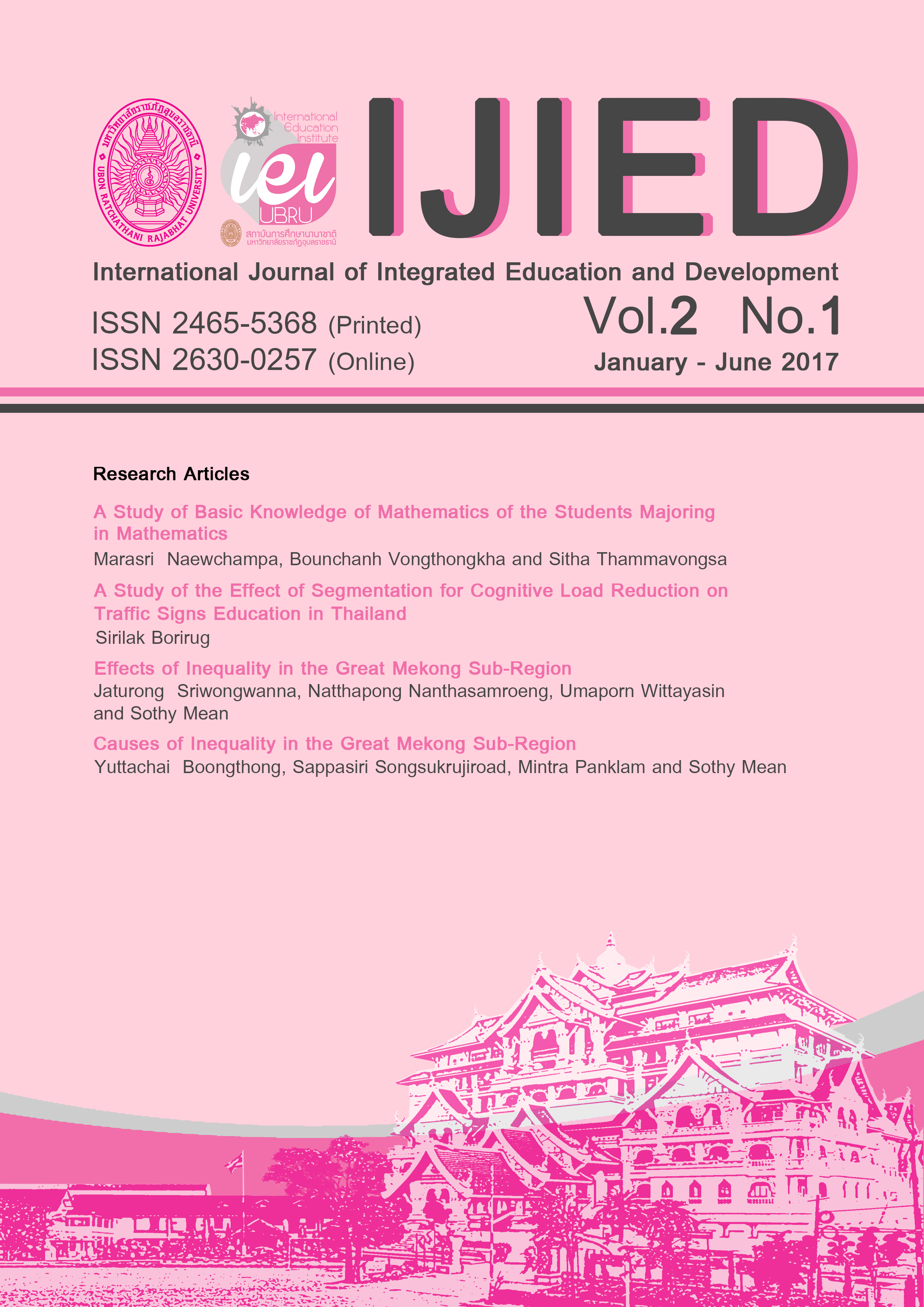Causes of Inequality in the Great Mekong Sub-Region
Main Article Content
Abstract
The objectives of this study were to: 1) study casual factors of inequality and 2) compare the factors that contribute to inequality grouped by gender, age, nationality and country of residence by using a questionnaire to collect data from all 600 participants who were students of the following universities: Ubon Ratchathani Rajabhat University (Thailand),Pakse Teacher Training College and Champasak University (Laos) and University of South-East Asia (Cambodia). Statistics used in data analysis were mean, standard deviation, t-test, and f-test.
The findings of the study indicated that;
1. The participants’ points of view released that the causes of inequality were ranked by means of descending order; education (a mean of 3.91), poverty (a mean of 3.88), ethnicity (a mean of 3.28), nationality (a mean of 3.21) and gender (a mean of 3.19).
2. Differences in nationality led to differences in casual factors of inequality which were nationality, gender, education and poverty with significance level of 0.05.
3. The country where participants were living led to the cause of inequality.
Article Details
A copyright notice is a short line of text that lets the public know that your work is protected by copyright law and is not to be copied.


